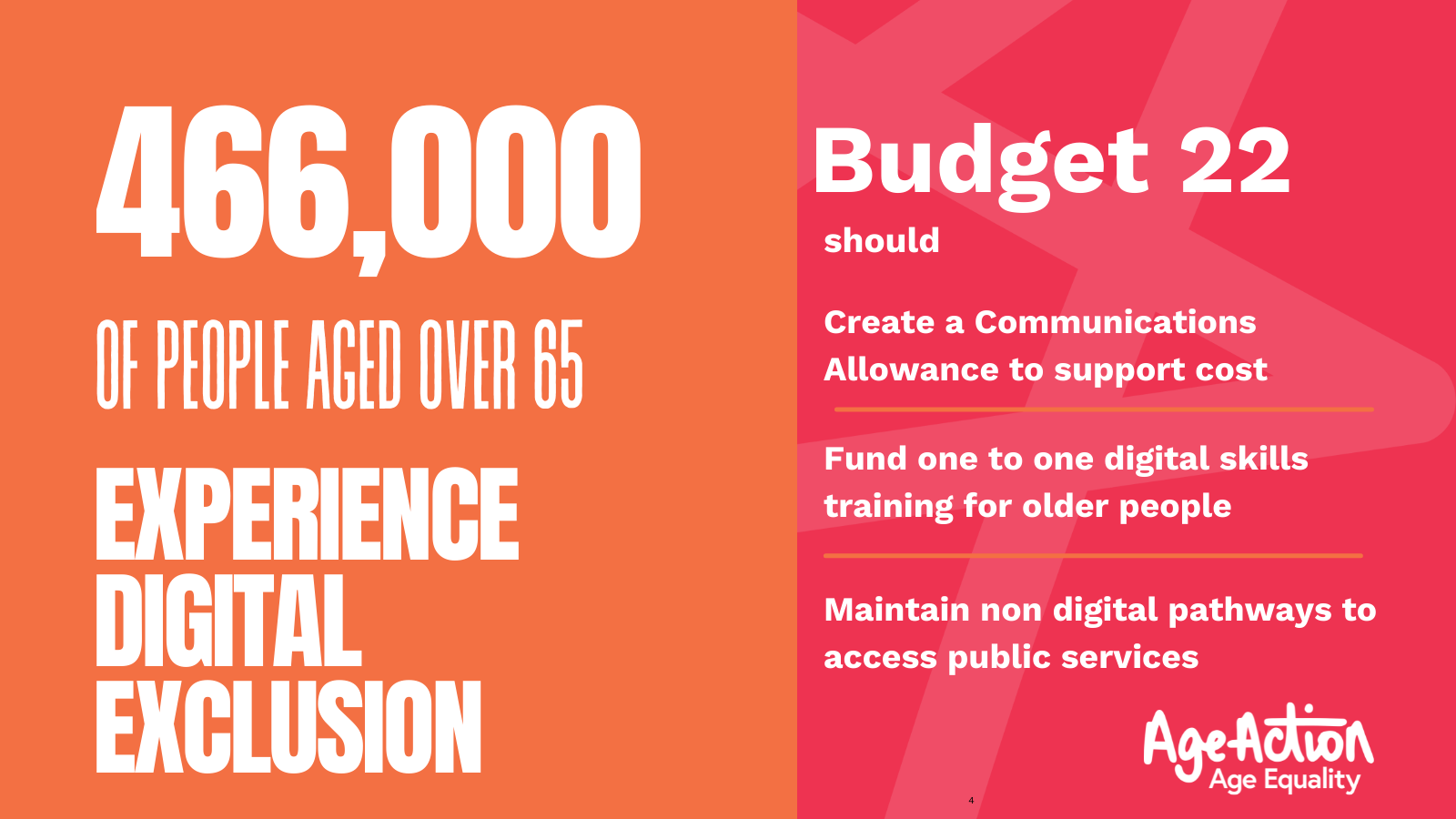(01 October 2021) 65% of People Over the Age of 65 Experience Digital Exclusion in Ireland
At least 466,000 people over the age of 65 experience digital exclusion in Ireland, meaning that they are not using the internet or they lack the digital devices or necessary skills to navigate the internet safely, and therefore are limited in their ability to access public services online. Digital exclusion restricts people’s access to their rights and affects their quality of life. Age Action released their report, Digital Inclusion and Ageing Population, to coincide with United Nations International Day of Older Persons on 1 October which is highlighting Digital Equity for All Ages.
‘While factors such as income and levels of education play a part, age is still the biggest indicator of who is digitally excluded. Digital exclusion has a large impact on people’s ability to access services and information, to stay independent for longer, to save money, to participate in the development of national policy, to teach and learn skills, and to stay connected to community, culture and news. Older people are at risk of being left behind unless active steps are taken to ensure their inclusion, including through non-digital forms of communication’ said Celine Clarke, Head of Advocacy and Communications at Age Action.
Over the last 13 years, most people in Ireland have adopted internet use. However, an estimated 11% of adults were not using the internet in 2020.[1] The proportion of adults not using the internet includes one in four (25%) people aged 60-74 and more than half (56%) of people aged 75 or older. This implies that approximately 275,000 people over the age of 65 are not using the internet at all. Of those people aged 65-74 who are online, 43% have digital skills below basic levels and only 6% have “above basic” digital skills.[2] When the number not using the internet is added to the number (over 190,000) with below basic digital skills, the total of digitally excluded older people is conservatively estimated as over 466,000 or 65% of all older people.
Age Action is calling for the creation of a Communications Allowance in Budget 2022 to help cover the cost of access to the internet for people on low fixed incomes. Budget 2022 should also provide sufficient funding for all public services to adequately staff alternatives to digital modes of communication to mitigate digital exclusion in addition to expanded funding for digital skills training.
‘A ‘Digital First’ approach should not mean a ‘Digital Only’ approach. Publicly funded services should not make a naïve assumption that all older people have adult children who can assist them or that they would want that. A rights-based approach must enable the capacity of individuals to live independently and to maintain their privacy. As a result of being forced to do their business online, a large proportion of older people lose independence and are required to divulge their private information to others. A lack of understanding of technical terms may also hamper a person’s capacity to give meaningful consent to terms and conditions and put people at risk of online fraud’ said Clarke.
ENDS
[1] Based on the proportion of each age cohort who have not used the internet in the last three months (https://data.cso.ie/table/ICA78).
[2] Eurostat (2019) Digital skills: Individuals’ level of digital skills. [isoc_sk_dskl_i] Available at: https://ec.europa.eu/eurostat/web/digital-economy-and-society/data/database

